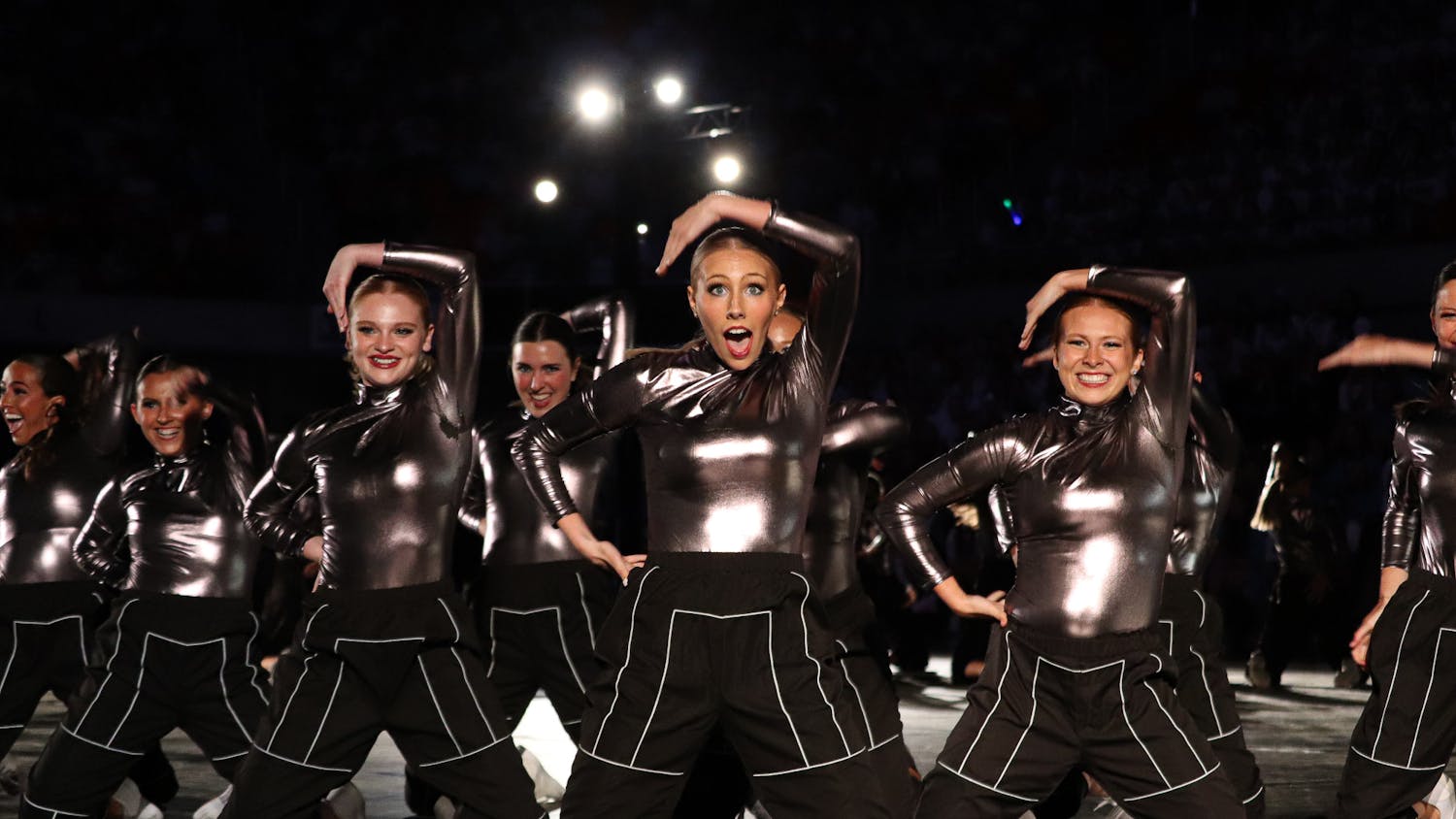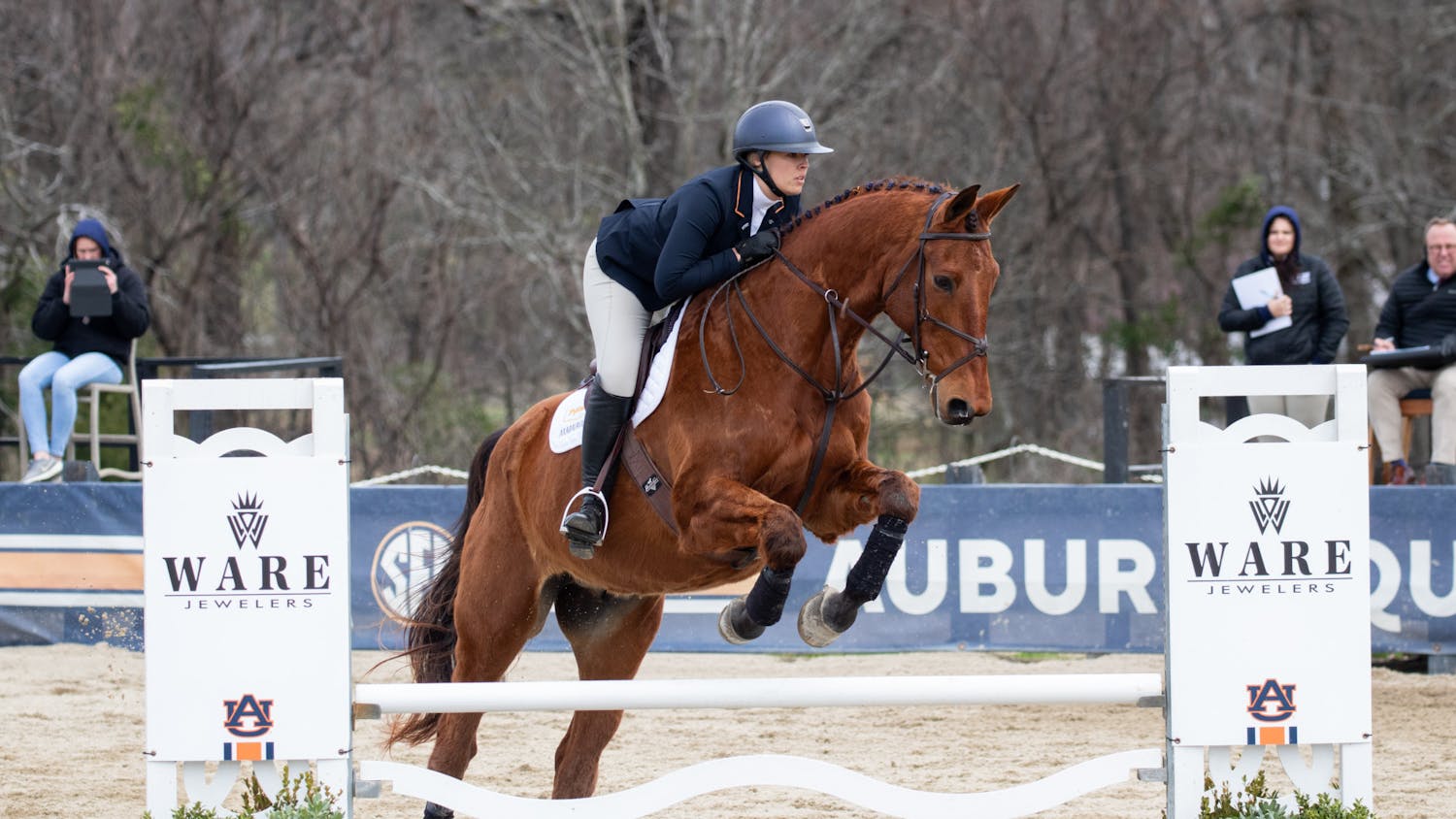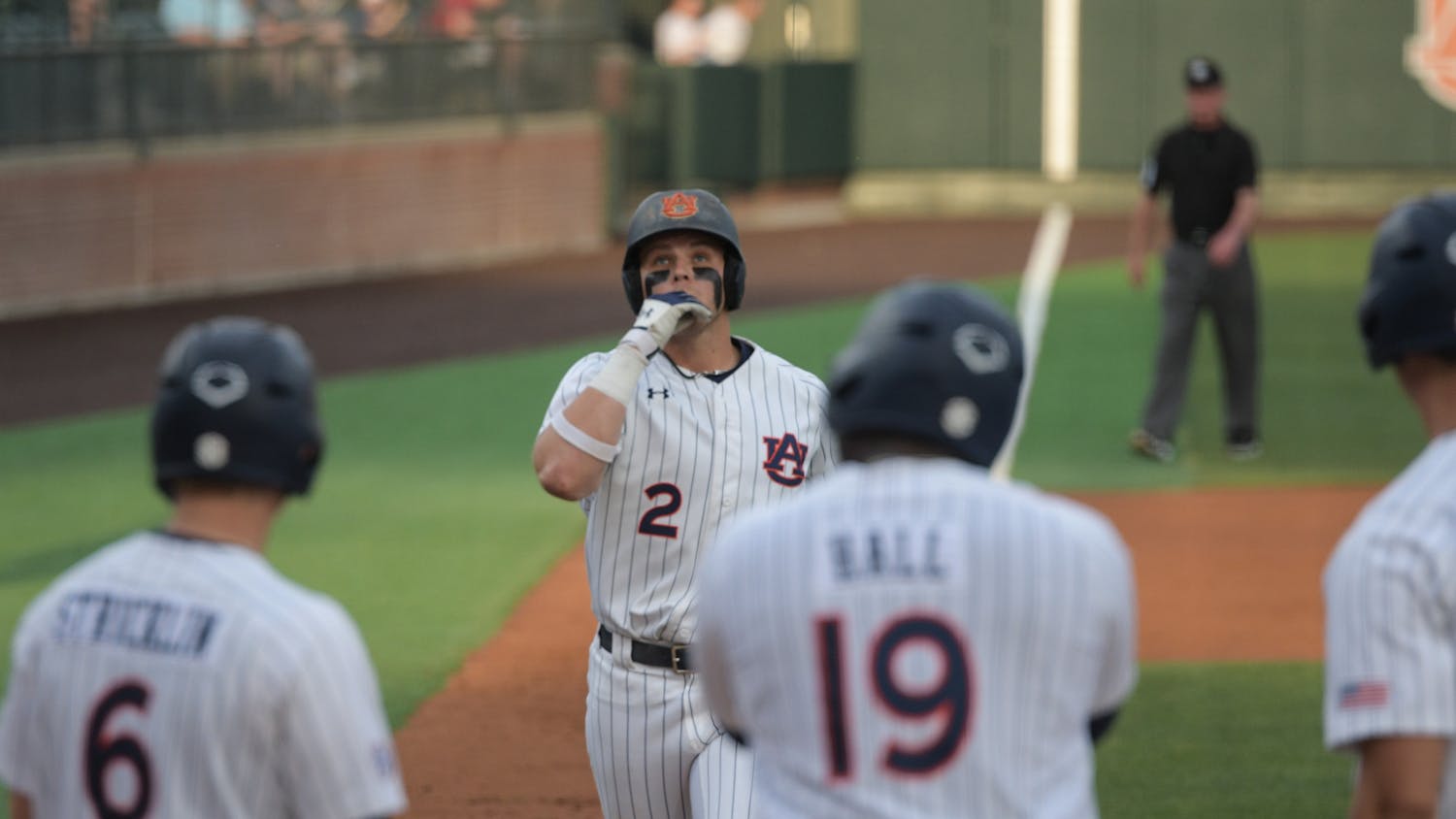At a command from Auburn Police K-9 Officer Luis Coreano, narcotics detection dog Mark runs through the abandoned building from room to room, nose inhaling furiously. Entering the closet where a small pouch of powdered cocaine is hidden inside a boot for the training exercise, the nearly 8-year-old Belgian Malinois slows his pace and sniffs more carefully around the area. As his nose passes over the boot, Mark suddenly sits and snaps his head around to look at Coreano, alerting his handler to the narcotic’s presence.
“Good boy,” Coreano praises his K-9 partner and tosses him a tennis ball.
Mark and Coreano carry out narcotics searches like this regularly on the streets of Auburn.
“Mark’s an animal,” Coreano said. “And I mean animal as in, yeah, he’s really high-drive. For being his age, I’ve had him for three and a half years, and he has not slowed down.”
This past February, Mark
The seminar featured all aspects of police work, including detection, tracking, narcotics, explosives
“They’ll put on different venues, whether it be detection, it could
The seminar ended with a scramble in which aids were hidden all over a large warehouse, and the teams competed to find as many as possible in a short period of time.
“It tests how good you can read your dog, how good the team works together,” Coreano said.
Being so in tune with each other was a big part of Mark and Coreano’s success.
“From the way he is, I can tell he’s on odor before he even sits,” Coreano said. “With Mark, I could look at him, his posturing. I could also audibly hear his sniffing. … He’ll start sniffing, and then he’ll start inhaling real hard.”
This is the second time Coreano and Mark have won the Dothan competition, the first time being in 2016.
Coreano and Mark began their partnership in September 2014 when the Auburn Police Divison purchased the Malinois. Mark originally came from overseas as a young dog, as many law enforcement canines do, was trained at American K-9 in Anniston and then worked as a contract dog in Afghanistan for a time before coming to Auburn.
“We were
The breed is used by law enforcement and military around the world. Navy SEALS utilized a Belgian Malinois in the operation in which Osama bin Laden was killed.
Coreano has been with the police force since 2001. He became a K-9 officer 12 years ago and hasn’t looked back.
“Honestly, this is one of the big reasons why I have not moved
Continue reading below...

Mark is almost always by Coreano’s side, whether at home or on the streets. Their day begins early. Coreano rises at 3:30 a.m., and lets Mark out of his kennel where he stays at Coreano’s house when he’s off duty.
“First thing I do is I’ll let him out, give him a break,” Coreano said. “And he comes in, and he eats. I like to feed him at least an hour, hour and a half before a shift begins.”
The routine is so down pat that Mark gets excited when he sees Coreano suiting up for work.
“If I’m suited up, and I leave, he gets upset,” Coreano said.
The two begin their shift at 5 a.m. Coreano tries to set up a training exercise for Mark at the beginning of the day. After that, they’ll do traffic enforcement or be available for narcotics work if needed.
“It’s just something about having that canine partner with you all the time,” the handler said. “It’s awesome. … I have no doubt in my mind that if needed, Mark would come defend me.”
Mark is trained to find narcotics through a stimulus, response and reward training method.
“The stimulus is the odor, the response is the sit or the scratch and then the reward is the ball,” Coreano said. “In their training, they pair the odor, whatever the target odor is, with the reward, and for my dog and many of them, it’s as easy as a tennis ball.”
While Mark wears a choke chain for discipline training, he sports a flat collar when he’s searching. Mark distinguishes between the two and knows that when he’s wearing the flat collar it’s time to search.
“The reason for the flat collar is it doesn’t put any stress on his neck like a choke chain would, so if he’s pulling me because he’s on odor, he’s not being corrected,” Coreano said. “The chain’s not cinching on him. … So he knows he’s not being snatched from something, so it gives him all the drive to move forward.”
When he’s at home, Mark is restricted to a large spacious kennel with his water bowl and no toys. Coreano takes him out every so often to exercise, play or do obedience training with him.
“It simulates, ‘You come out of the car, now it’s playtime,’” Coreano said. “They learn to pair that stuff. So he’s at rest, comes out, he knows he’s going to work, he’s going to get rewarded, then time to calm down, put back inside and rest.”
A police canine can’t have access to toys whenever he wants, Coreano said, as he’ll have no motivation to work for them.
“A lot of people, they don’t understand that. Training Fifi at home is not the same as training a military working dog, is not the same as training a police working dog,” Coreano said. “They’re not given the freedoms that normal dogs are, so they’re not pets. And there’s a good reason for that — because it kills the drive.”
Mark gets to play with his favorite reward, the tennis ball, strictly after a search.
“We don’t come to work for nothing,” Coreano said. “It’s the same thing with the dog. He does his job, he expects to be paid. And then you pay him, and then he’s going to want to do that later on.”
During search exercises, Coreano typically uses actual drugs as the aids, so Mark will be trained on authentic odors. He also trains Mark in different settings, such as a parking lot or warehouse. In addition, he hides the aides in a variety of locations and at different heights, such as in the bumper, grill
“Just like the drug cartel, the traffickers, they come up with all different kinds of ways of smuggling,” said Coreano. “And when the dog defeats that — because you can’t defeat his nose — when the dogs finds it, it’s just like, yes! Can’t fool the dog. The nose knows.”
For Mark, searching for drugs is like a game. He is extremely high energy, loves to play and be petted and typically wants to “blow out the door” of the patrol car, Coreano said. When he’s not sniffing for narcotics, Mark’s eyes are glued to Coreano.
“He is so affectionate,” Coreano said of Mark. “He loves the attention.”
Coreano is not only a handler, but a certified trainer as well, and he has trained both young dogs and new canine officers. Coreano developed a greater understanding of training and said he learned a lot through teaching other people.
“When I became a trainer, I realized how jacked up I was,” Coreano said with a laugh. “It’s like, ah, that’s why this is happening. I’m causing the problem.”
Coreano has seen handlers get frustrated when they can’t control their dog. Coreano said understanding a dog’s nature, setting the dog up for success and maintaining a ritual and routine that the dog is used to are important when training.
“It’s not a rifle where you pick it up, and you point, and you shoot,” Coreano once told a student of his. “It’s an animal, so you’ve got to understand that.”
For Coreano, it’s gratifying to see officers he trained
“It’s especially been rewarding to see the students that I trained and the dogs become successful,” he said. “These guys are sending me texts and sending me pictures of the stuff they’re doing. … That’s rewarding to me.”
Coreano said there’s definitely a bond within the K-9 team, and there comes a moment when handler and dog start clicking. It’s clear that Mark and Coreano have achieved that moment.
As Mark mouths his well-earned tennis ball after successfully sniffing out the cocaine aide, Coreano said again he would be a K-9 officer his whole career and not worry about getting promoted.
“I’ve done the SWAT thing, I was a sniper, a motorcycle officer, I’ve worked undercover narcotics, but being a dog handler, it’s fantastic,” he said. “I just want to supervise one person — or one being — and that’s him.”
Do you like this story? The Plainsman doesn't accept money from tuition or student fees, and we don't charge a subscription fee. But you can donate to support The Plainsman.



